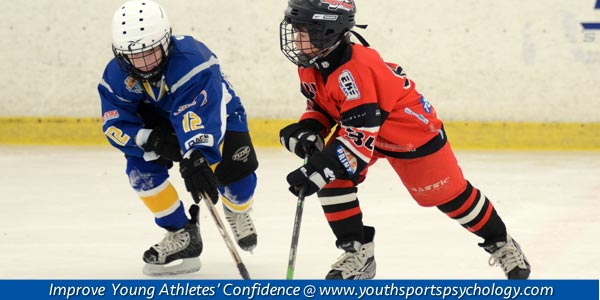Communicating With Sports Kids After Losses
What exactly is going on in the minds of young athletes when they throw a bat after striking out, storm out of a gym after a loss, or cry when their team suffers a big upset?
How should you deal with this behavior?
First of all, if you really want to understand the young athlete, don’t judge such behavior, says Gary Kramer, founder of Inner-Sports, which is an innovator in behavioral evaluation and coaching.
Before parents and coaches react to such behavior, they need to try to understand what’s behind it, he says.
Why is this important to you as sports parents and coaches?
Because some kids lash out often in sports—and how you deal with it will either boost their confidence or undermine it.
“Let’s try not to focus on the behavior,” suggests Kramer. “If we do, parents and coaches will say, ‘You can’t do that. It’s not acceptable.’ But when we do this, the child becomes angrier or resistant.”
Instead, parents and coaches need to focus on kids’ state of mind. It’s important to try to understand kids’ level of well-being at the moment, he says.
If young athletes are experiencing generally high levels of well being—if they had a good day in school, for example—they’re less likely to lash out. But if they’re experiencing low levels of well-being, they’re more likely to display what’s considered bad or angry behavior.
When young athletes do display this type of behavior, it’s time for parents and coaches to call a time-out, he says. Wait until everyone cools off before addressing the issue.
Here at the Ultimate Sports Parent and Kids’ Sports Psychology, we, like Kramer, stress the importance of communicating well with young athletes—whether or not they’ve just lashed out.
It’s critical for parents and coaches to show empathy for their young athletes. Rather than judging kids, you want to understand where they are coming from.
When they tell you they had a bad day and played poorly because of it, listen to them. Don’t offer suggestions. Let them know you hear what they’re saying.
Good communicators not only are good listeners, they also are careful about the words they use. It’s critical to be positive with young athletes.
You don’t want to focus on their mistakes or losses. If you focus too much on mistakes and losses, your kids will become hyper-sensitive. They may develop fear of failure. That can lead to poor performance because kids will fear taking risks and making mistakes.
Related Articles on Youth Sports:
- Coach Communication With Parents And Athletes
- How Parents Can Improve Communication with Sports Kids – of All Abilities
- Important Dos and Don’ts for Sports Parents Before Games
*Subscribe to The Sports Psychology Podcast on iTunes
*Subscribe to The Sports Psychology Podcast on Spotify
Help Young Athletes Boost Confidence in Sports!
Every day, we receive letters from parents like you who want their children and teens to excel in sports. However, these parents can see fear, doubt, and frustration on the faces of their kids who struggle with the “inner” game of sports. But these parents have no idea how to help their kids overcome the worries, expectations and self-defeating thoughts that prevent their young athletes from feeling confident and successful.
You can benefit from our 15-plus years’ of work in sports psychology and sports parenting research. Now, you can tap into our secrets to sports success through a cutting-edge, 14-day program that helps young athletes overcome the top “mental game” challenges that sports parents face—and the top challenges young athletes face.


